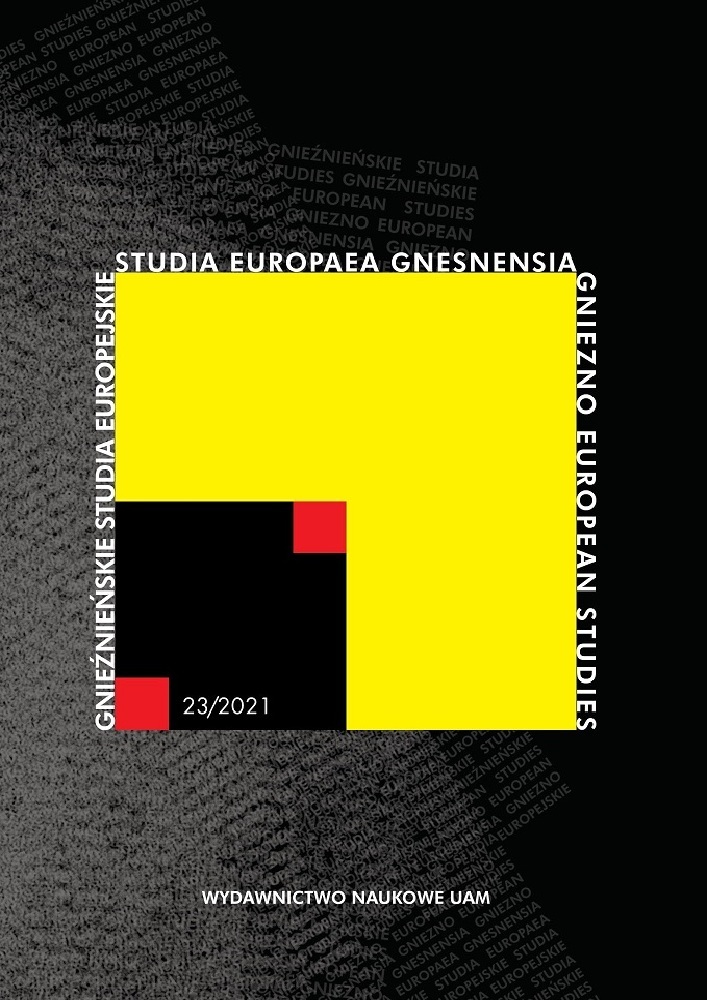Resumen
The article analyzes the challenges to the Ukrainian nation-building and national security of Ukraine in the informative and cultural sphere at the present stage. Consequently, the author high- lights the problems of linguistic self-identification of Ukrainians, the functioning of the informative and cultural space as well as its impact on the formation of Ukrainian national consciousness are highlighted. Also, the paper determines the threats in the information sphere in the context of Rus- sia’s hybrid war against Ukraine and examines the formation of national consciousness through the system of national and patriotic education in Ukraine. The priorities of the state language policy, state policy in the information sphere and national-patriotic education in Ukraine at the present stage are defined in order to ensure the formation of the Ukrainian national consciousness and the Ukrainian civil nation, countering the challenges to the national security of Ukraine.
Citas
About approval of the Strategy of Ukrainian language popularization till 2030 “Strong language – a successful state”, Order of the Cabinet of Ministers of Ukraine of July 17, 2019 596-r.
Bekh I., Zhurba K. 2018, The concept of formation of national and cultural identity among teenagers in secondary schools, [in:] Formation of national-cultural identity and personality in the challenges of time: collection of materials of the All-Ukrainian round table (to the centenary of the founding of Kamyanets-Podilsky National University named after Ivan Ogienko), Kamianets-Podilskyi.
Chuprii L. Shliakhy optimization of national patriotic education of youth in the context of ensuring the formation of national self-awareness and historical memory of the Ukrainian people [on- line]. Bulava [access: 2020-12-21]. Available at: <http://bulava.in.ua/chupriy_molodist.html>.
Constitution of Ukraine adopted at the fifth session of the Verkhovna Rada of Ukraine on June 28, 1996.
Fishman J.A. 1991, Reversing Language Shift: Theoretikal and Empirical Foundations of Assistance to Threatened Languages, Clevedon, England.
Honcharova M. 2015, The role of language in the formation of varieties of identities, Language and Society 6, p. 60-69.
Ilnytska, U. 2016, Information security of Ukraine: modern challenges, threats and mechanisms of coun- teraction to negative information and psychological influences, Humanitarian vision 2, 1, p. 27-32.
Karlova V.V., The influence of the media on the formation of the Ukrainian national conscious- ness [online]. National Academy For Public Administration [access: 2020-12-21]. Available at: <http://academy.gov.ua/ej/ej6/txts/07kvvunc.htm>.
Kiesling S. 2006, Identity in Sociocultural Anthropology and Language, Encyclopedia of Language and Linguistics 13, p. 494-502.
Kuts Yu.O. 2017, Modern language policy of the Ukrainian state: administrative and legal aspect, Theory and practice of public administration 1 (56), p. 1-6.
Language and Nation: The Struggle for the Linguistic and Cultural Space of Ukraine. Review of materials from the press, the Internet and unpublished documents for 2018-2019 [online]. DZK 4/4, 2019 [access: 2020-11-28]. Available at: <https://nlu.org.ua/storage/files/Infocentr/Tem-atich_ogliadi/2019/MovaI.pdf>.
Lypynskyi V. 1995, Letters to the brothers-farmers. On the idea and organization of Ukrainian mon- archism, Kyiv-Philadelphia.
More than 90% of citizens called themselves Ukrainians by nationality [online]. Pravda, June 17, 2017 [access: 2020-12-07]. Available at: <http://www.pravda.com.ua/news/2017/06/17/7147226/>.
On ensuring the functioning of the Ukrainian language as the state language, the Law of Ukraine (2019), Information of the Verkhovna Rada (IVR), 21, p. 81.
Parfeniuk I. 2019, Ukrainization of the cultural space of Ukraine in the system of information secu- rity of the state, Ukrainian information space 2, p. 63-72.
Patriotism, language and foreign policy priorities – public opinion of Ukraine [online]. Ilko Kucheriv Democratic Initiatives Foundation [access: 2020-12-21]. Available at: <https://dif.org.ua/arti-cle/%20patriotyzm_mova>.
Petrovskyi P. 2019, The struggle for Ukrainian identity in a hybrid war, Public administration aspects of the formation of national identity [online]. Lviv Academy [access: 2020-12-23]. Available at: <http://www.lvivacademy.com/vidavnitstvo_1/conferencii/konf_26.pdf>.
Philosophy of politics, 2003, Kyiv.
Pocheptsov H. 2016, Meanings and wars: Ukraine and Russia in condition of information and se- mantic wars, Kyiv.
Potapchuk T.V. 2010, Cultural identity of the individual: problem statement, The problem of modern pedagogical education 27, 1, p. 180-187.
Research: language situation in Ukraine [online]. TNS [access: 2020-11-16]. Available at: <https://tns-ua.com/news/doslidzhennya-movna-situatsiya-v-ukrayini>.
Saienko O.H. 2015, Mechanism of information and psychological influence in the conditions of hybrid war, [online]. Bulletin of the National Academy of the State Border Guard Service of Ukraine. Series: Psychology 1 [access: 2020-12-27]. Available at: <http://nbuv.gov.ua/UJRN/Vnadpn_2015_1_11>.
Shevchuk P. 2014, Information and psychological war of Russia against Ukraine: how to counteract it [online]. Democratic governance 13 [access: 2020-12-23]. Available at:<http://lvivacademy.com/visnik13/zmist.html>.
Strategy of national-patriotic education, Decree of the President of Ukraine dated May 18, 2019 286/2019.
Vilchynskyi Yu. 1994, Ukrainian national idea in the history of V. Lypynskiy, II International Con- gress of Ukrainians: Philosophy, Lviv
Vyshnevskyi O. 1996, Modern Ukrainian education, Lviv.
Zakharenko K.V. Openness of information space and control over the availability of informa- tion [online] IRCPNU [access: 2020-12-27]. Available at: <http://ir.stu.cn.ua/bitstream/han-dle/123456789/17410/30-5.pdf?sequence=1&isAllowed=y>.

